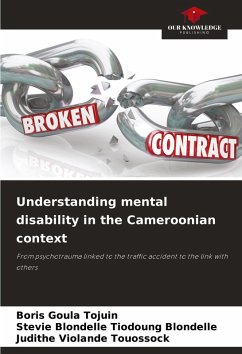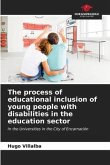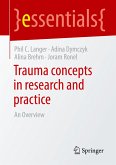Considering the literature on trauma and in particular post-traumatic stress disorder (PTSD), we note that the related issues have been widely addressed, but not sufficiently that of the post-traumatic feeling of vulnerability (FV) as a handicap. Some who have approached this state have done so from a psychopathological angle (Navarre 2001, Paré 2011, St-hilaire 2012, Dégeilh & al 2013, Bissonnette 2015, etc.), rightly raising the expression of suffering that PTSD takes on in its victim. Faced with trauma, psychotraumatized people (PT) demonstrate FV, which plunges them into a situation of handicap and gives rise to a psychological reorganization in order to restore the lost psychological and social balance. Thus, the problem posed here is that of the destructuring of the psychotraumatized person's bond with others, plunged into the feeling of vulnerability. In such a context, the PP's link to the other is expressed according to the unbinding of the drive and the ego's attempt toreestablish balance within the psychic spaces whose harmony ensures the individual's balance and makes him an adapted being.
Bitte wählen Sie Ihr Anliegen aus.
Rechnungen
Retourenschein anfordern
Bestellstatus
Storno









